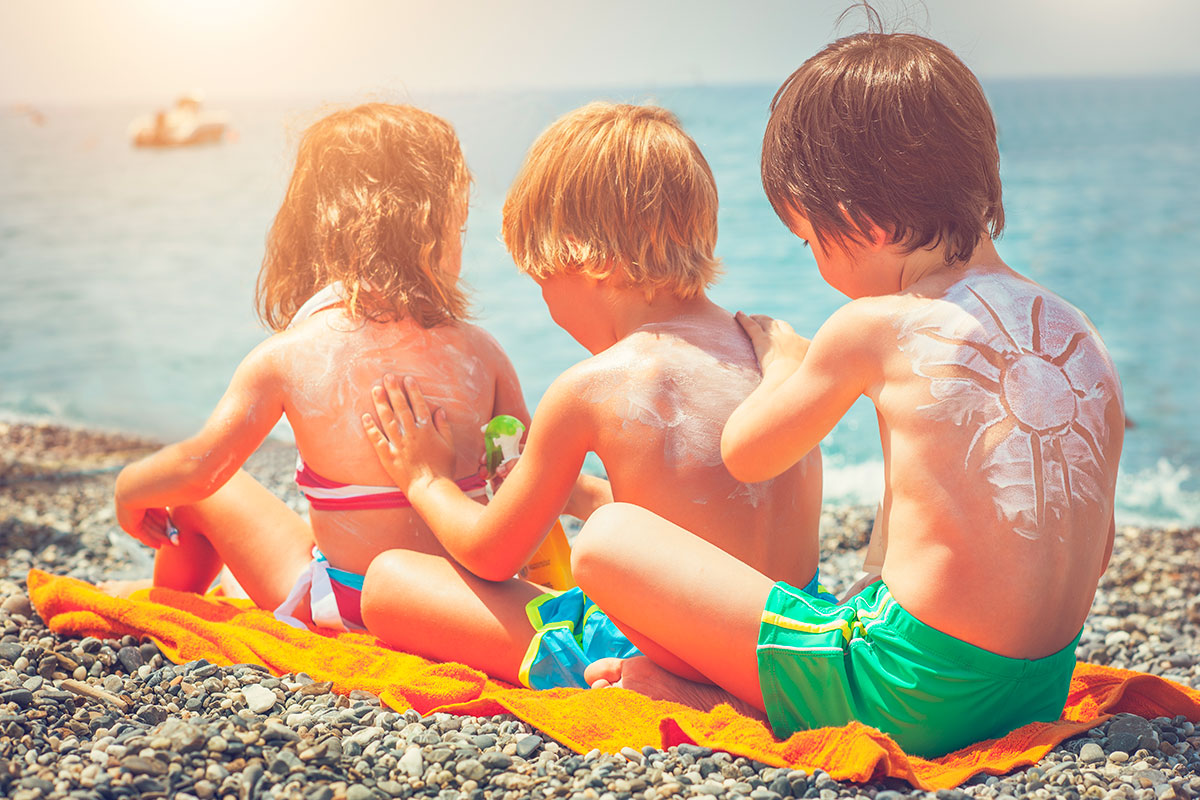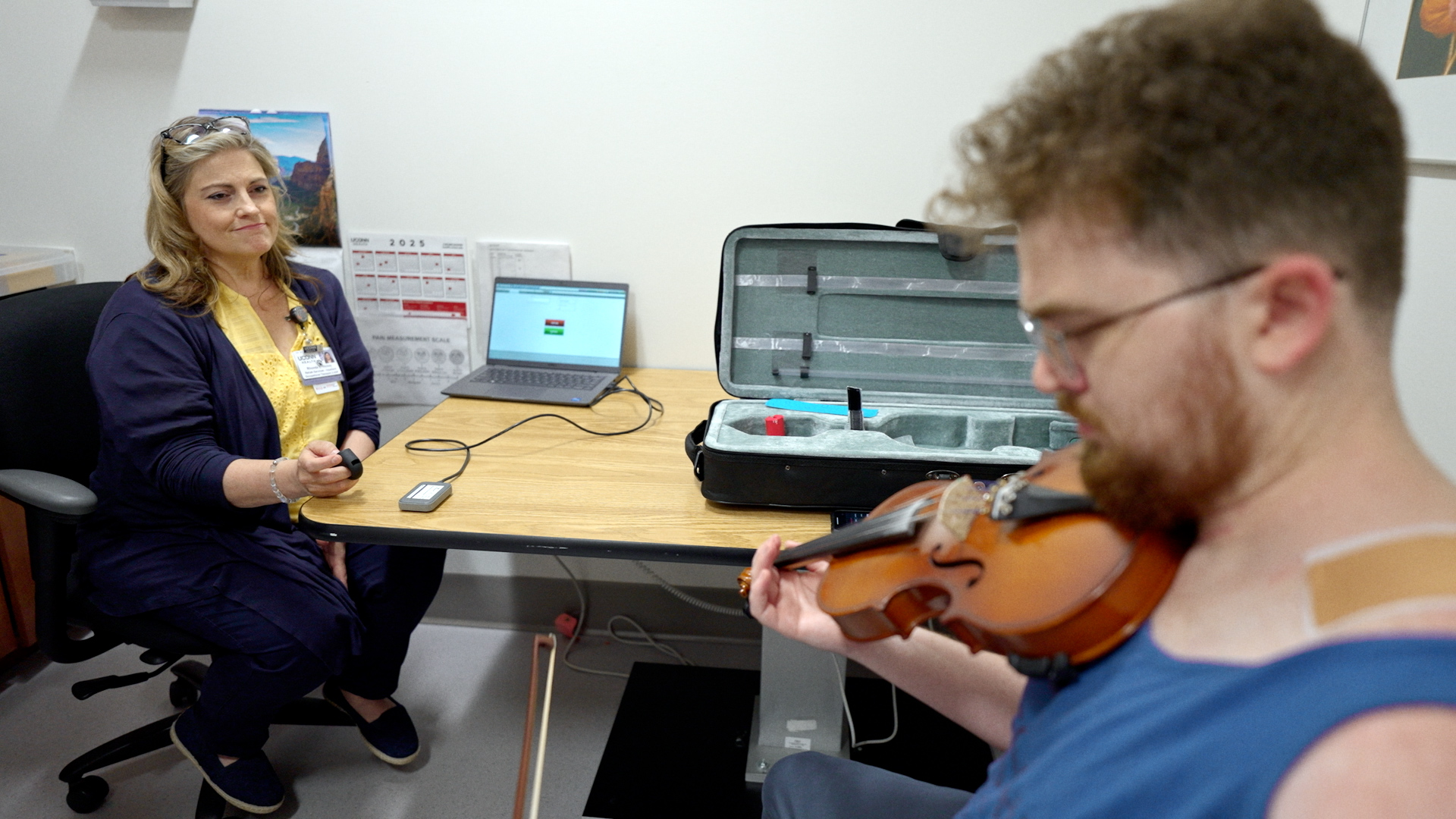Summer brings fun and adventure, but there are several things that should be kept in mind to stay safe and healthy while having fun in the sun and enjoying all the activities the season offers.
Sun Safety – It is important to keep these tips in mind and review them with your children as well. Sunburns are very common, but they are very preventable. Although sunscreen application is very important, sun safety is more than just applying sunscreen.
- Sunscreen with at least SPF 15 should always be applied before going outside. Your skin can still be damaged by UV rays from the sun even on cloudy days.
- You should wear a wide-brimmed hat that covers your face and ears. When wearing baseball caps, apply sunscreen to the back of your neck and ears.
- To help stay cool at the beach and for sun protection, umbrellas and canopies are great options for the beach.
- Don’t forget to keep a pair of sunglasses on hand. They help to protect your eyes from damaging UV rays.

Dr. Jane Grant-Kels, a UConn Health dermatologist and nationally recognized skin cancer expert, provides further detail on sun safety:
Don’t skimp on the sunscreen: Start with at least 1 ounce (think shot glass) to cover your entire skin surface. And you’ll need to reapply every two hours, or sooner after swimming or heavy perspiration. “That means a tube of sunscreen shouldn’t last a whole summer; it should last probably a weekend if used properly,” Grant-Kels says. “And it doesn’t give you permission to lay in the sun all day.”
Preferred products: Use sunscreens with a sun protection factor (SPF) rating of at least 30 (SPF goes up to 100, which is more protective than 30, but not three times as protective, so don’t pay three times the price). “I recommend a total block, which means UV-A and UV-B, and water-resistant,” Grant-Kels says. Creams are better than lotions, wipes or sprays. And if you’re concerned about the environment, use physical sunscreens that deflect the sun’s rays, such as those that contain zinc oxide or titanium dioxide, rather than the chemical sunscreens that absorb the sun’s rays.
What to Wear: Sun-protective clothing is now available – some even have an SPF rating. They’re usually tightly woven but lightweight with ventilation. And you don’t have to re-apply, which gives them an advantage over sunscreens. Even some bathing suits are made from sun-protective fabric. “And wearing a hat with a 4-inch brim is, I think, mandatory, especially for people when they’re outdoors for long periods of time,” Grant-Kels says.
Sun safety and protection is very important, but here are a few other tips to keep top of mind for you and your children’s safety:
Water Safety
- Never leave your child unattended around the water. Even if your child knows how to swim, there is still a risk for drowning. Small children can drown in less than two inches of water that is left in a bucket.
- Life jackets or other flotation devices should always be worn. Make sure to check the size and weight recommendations, and read all warning labels.
- Being comfortable in the water is a life skill for people of all ages, and it’s never too late, even for adults, to take swimming lessons.
Some of the summer holidays bring opportunities to celebrate with fireworks. Fireworks should be handle by adults only and should always be kept away from your face and clothing.
Firework Safety
- It is important for fireworks to be lit outdoors in an open space, away from housing and dry brush or vegetation.
- Purchase only legal fireworks, and they should be stored in a cool, dry place. Also, research local community regulations on fireworks before proceeding further.
- Children should not handle fireworks – even if they already have been used. They sometimes have a delayed fuse and can still be lit.

Dr. Robert Fuller, chair of UConn Health’s Department of Emergency Medicine, says that insect protection is also essential during the summer months and further reinforced the need for sunscreen.
“Summer is a great time of year to undertake fitness goals,” adds Fuller. “However, be sure to take safety precautions including wearing bike helmets and life jackets in the water. Injuries from sports and other activities as well as exertional symptoms like heart attacks in older adults should be addressed immediately.”
Make note of emergency or trauma centers in your local area and when traveling so you know where to go if the need for those services should arise.
There are so many joys to experience during the summer. Go out there and have fun; but, be safe!



